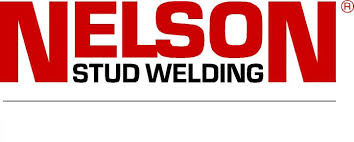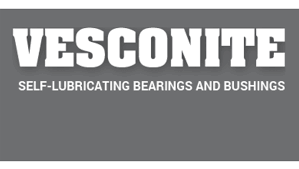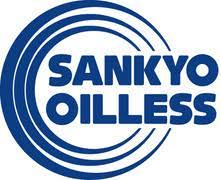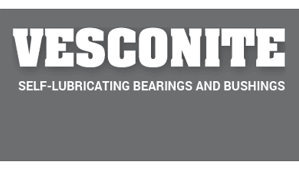Enterprises face difficulties because of high steel prices
Currently, Hoa Phat CB240 D6, D8 coil (diameter 6-8 mm) is offered at a price of 16.4 million VND per ton by dealers; CB400V rebar price ranges from 15.6-15.75 million VND per ton depending on the diameter.
Similarly, Vina Kyoei Company quoted CB240 coil price at 16.5 million dong for D6, D8 and D10 at 15.4 million dong per ton. Meanwhile, Southern Steel brand also recorded VND 16.7 million a tonne with CB240 D10 coil and VND 15.7 - 15.9 million a ton of CB400V D10, D12 steel.
Compared to the beginning of April, each ton of rolled steel has increased by nearly 1 million dong and rebar increased by 1.5-2 million dong per ton. These prices do not include VAT as well as shipping costs to the site.

Steel production at a factory in An Giang. Photo: Phuong Dong.
The price increase helps the steel industry to benefit in price, but businesses that use steel as production materials or construction contractors fall into the situation of "standing still".
Making a bid estimate for a construction project in Hai Phong, Mr. Hai, an engineer at a construction company in Hanoi, had to change his spreadsheet three times in a week because of fluctuating steel prices. In fact, steel prices have increased "scattered" since the beginning of this year and into the "wave" cycle of galloping from the beginning of April.
"There are steel enterprises in the first 10 days of April that have changed their quotation six times, with a total increase of over one million dong per ton. The price changes constantly making the project estimators 'unknowing where to go. The project the company he received at the beginning of the year went from profit to loss because the price of steel increased by 40-50%," Hai said.
For each civil construction project, steel usually accounts for 10-30% of the total project value, so the price fluctuation of this item has a strong impact on contractors. Many construction enterprises and contractors said that the increase in steel prices from the beginning of the year until now has seriously affected the efficiency of the projects they have signed contracts with, their ability to receive contracts for such projects. contracted.
"Currently, contractors compete very fiercely with the bid price, so the expected efficiency is usually very low, just enough to maintain production and get cash flow to feed the apparatus. Every time such steel price increases, contractors more losses and more difficulties", said Mr. Quang Trung - Deputy Director of Long Giang Foundation Construction Joint Stock Company.
With the supporting industry, iron and steel are the main raw materials. The price of this item has increased by nearly 50% since the beginning of the year, causing Mr. Ngoc - Director of Hanoi Trading Company to say that "enterprises hold losses". With the signed contracts, Mr. Ngoc's company cannot increase the price of products, but with future orders, he said, the price will definitely increase by 20-30%.
Concerned that steel prices will continue to increase, businesses have had to advance large amounts of money to buy steel and store it in warehouses. But not every time you want to buy, the goods are available. "Businesses who want to receive goods must notify a few days or a week in advance because steel is quite scarce, even businesses pay in advance for orders but still not sure," the director shared.
Domestic steel enterprises explain the increase in steel selling price due to the high price of steel billet, steel scrap and input materials for steel production globally. Iron ore prices are currently above $170 a ton, up 55% from the end of 2020 and double the same period last year. Hot rolled coil also recorded an increase of 44% over the same period, the price threshold of $ 660 a ton. Not to mention, the shortage of steel supply and long delivery time in Europe and the US are also the reasons why steel prices have increased sharply.
"We have tried to stabilize the market price, but the price of billet and raw materials has increased continuously, forcing businesses to increase the selling price of steel products," a representative of Viet Duc Steel shared in a notice sent to customers.
The steel price list is constantly changing, so agents quote to customers daily instead of weekly as before and do not forget to remind "quotes are for reference only at the time of making, prices may change" .
Analysis of steel industry experts shows that the price increase cycle of this item will continue until the end of this year. Some major infrastructure and public investment projects that are about to be implemented such as the North-South Expressway, Long Thanh International Airport, etc., along with the recovery of the real estate market, will increase steel demand by 3-5%. compared to 2020.
The increase in domestic steel prices is also due to the impact of demand on the world market when the supply is short and delivery time is long in the US and Europe. Not to mention the high demand for steel in China after the epidemic before the economic recovery momentum and economic stimulus measures such as infrastructure investment. In 2020, the country imported 38.56 million tons of steel, an increase of 150% over the previous year.
Difficulty because of Covid-19 caused orders to "up and down", not many construction projects started, but because of the high volatility of steel - the main material of production, construction, construction contractors. , ancillary businesses said they had to refuse to accept projects and orders. "There have been at least two construction projects that Long Giang Company has refused to do since the beginning of the year because steel prices have increased too high, making sure to make a loss," said Deputy Director of Long Giang Company.

Mong muốn hợp tác, đầu tư sản xuất tại Việt Nam
Trao đổi với phóng viên Báo Đầu tư Online - Baodautu.vn, bà Jinying Zhang, Tổng giám đốc Công ty Pigeon, một doanh nghiệp sản xuất xe đạp hàng đầu tại Trung Quốc cho biết, nhu cầu về xe đạp của thị trường Việt Nam rất lớn, nên doanh nghiệp của bà không chỉ giới thiệu những sản phẩm mới, mà còn mong muốn hợp tác, đầu tư sản xuất tại Việt Nam.
Tại Triển lãm Vietnam Expo tổ chức hồi đầu tháng 12 tại TP.HCM, Công ty Pigeon đã mang sang 16 mẫu xe đạp và được khách hàng đặt mua hết. Chỉ sau đó vài ngày, Công ty có lịch làm việc với các đối tác tiềm năng để cùng trao đổi về kế hoạch hợp tác.
Mặc dù mới đây, doanh nghiệp sản xuất xe đạp hàng đầu của Đài Loan (Trung Quốc) là Tập đoàn DDK cũng đã khởi công xây dựng một tổ hợp sản xuất tại tỉnh Bình Dương, với diện tích khoảng 80 ha, nhưng bà Jinying Zhang cho biết, điều này sẽ không ảnh hưởng nhiều đến kế hoạch của Pigeon tại thị trường Việt Nam.
“Công ty Pigeon có nhà máy sản xuất tại 29 tỉnh tại Trung Quốc, song chưa có cơ sở sản xuất nào tại khu vực ASEAN. Với những tín hiệu tốt tại thị trường Việt Nam, có thể tới đây chúng tôi sẽ xem xét đến việc đầu tư nhà máy sản xuất”, bà Jinying Zhang nói.
Ông Yu Xue Jun, Chủ tịch Công ty Tian Jin Zheng Fang nhận xét, tiềm năng của lĩnh vực cơ khí tại Việt Nam rất lớn. Do đó, công ty của ông đang có kế hoạch tìm hiểu về môi trường đầu tư, chính sách ưu đãi đầu tư… của lĩnh vực này. Nhiều khả năng doanh nghiệp sẽ chọn TP.HCM để đặt cơ sở sản xuất. Được biết, Tian Jin Zheng Fang là doanh nghiệp chuyên sản xuất các loại máy biến thế điện và các sản phẩm do công ty sản xuất hiện đã được bán tại thị trường Việt Nam.
Chia sẻ tại Hội nghị “Xúc tiến thương mại và đầu tư Bắc Kinh, Thiên Tân, Hà Bắc tại Việt Nam” vừa tổ chức tại TP.HCM, ông Võ Tân Thành, Giám đốc Phòng Thương mại và Công nghiệp Việt Nam, Chi nhánh TP.HCM (VCCI TP.HCM) cho biết, hợp tác thương mại, đầu tư giữa hai nước tăng mạnh trong thời gian gần đây là lý do nhiều doanh nghiệp Trung Quốc đến tìm kiếm cơ hội tại Việt Nam. Trước đây, chỉ các doanh nghiệp phía Nam Trung Quốc sang Việt Nam do gần gũi về địa lý, thì giờ đây có thêm nhiều doanh nghiệp tại Bắc Kinh, Thiên Tân, Hà Bắc (là các địa phương ở phía Bắc của Trung Quốc) đã đến giới thiệu sản phẩm mới, tìm cơ hội hợp tác với doanh nghiệp Việt Nam.
Khó khăn bủa vây doanh nghiệp nội
Ông Đỗ Phước Tống, Chủ tịch Công ty TNHH Cơ khí Duy Khanh cho biết, Công ty vừa quyết định đầu tư dự án tại Khu công nghệ cao TP.HCM (SHTP) với vốn đầu tư đăng ký là 5,2 triệu USD, có mục tiêu chế tạo máy và khuôn mẫu chính xác.
“Doanh nghiệp cơ khí của Việt Nam có trình độ không thua kém doanh nghiệp nước ngoài, nhưng chỉ những người thực sự say với nghề mới mạo hiểm để đổ vốn lớn đầu tư. Hiện nay vẫn còn tồn tại chính sách “ngược”, làm cản trở, gây khó khăn cho sự phát triển của doanh nghiệp ngành cơ khí”, ông Tống nói.
Cụ thể, theo ông Tống, chính sách thuế nhập khẩu đang làm khó cho doanh nghiệp, khi mà máy móc nhập khẩu (nguyên chiếc) được hưởng thuế suất là 0%, trong khi các linh kiện, thiết bị mà doanh nghiệp nhập khẩu để lắp ráp, làm ra máy đó lại chịu thuế từ 10 - 15%. Đơn cử, các máy dược phẩm, thuế nhập khẩu nguyên chiếc là 0%, nhưng những nguyên vật liệu nhập để lắp ráp làm ra loại máy này như tấm thép không gỉ có thuế 10%, hay các linh kiện điều khiển tự động thì thuế nhập khẩu là 15%... Điều này đã làm chi phí sản xuất đầu vào của doanh nghiệp bị đẩy lên cao, dẫn đến kém khả năng cạnh tranh với sản phẩm ngoại.
Thêm một cái khó nữa là, doanh nghiệp Việt phải cạnh tranh với các doanh nghiệp FDI có cùng ngành nghề ngay tại “sân nhà”. Chưa tính đến yếu tố các doanh nghiệp FDI mạnh hơn hẳn về tiềm lực tài chính, công nghệ, quản trị… thì khi đầu tư vào Việt Nam họ đã có sẵn khách hàng nên chỉ lo việc sản xuất để cung ứng.
Đơn cử, các doanh nghiệp của Hàn Quốc, Nhật Bản… hoạt động trong lĩnh vực công nghiệp hỗ trợ (trong đó có rất nhiều doanh nghiệp cơ khí - PV) gần đây đầu tư vào Việt Nam rất nhiều vì trước đó đã có các tập đoàn lớn của nước họ đến triển khai dự án. Các tập đoàn này dĩ nhiên sẽ “ưu ái” cho các doanh nghiệp của nước họ nên khó có doanh nghiệp nào của Việt Nam chen chân vào được.


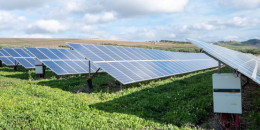



.jpg)
